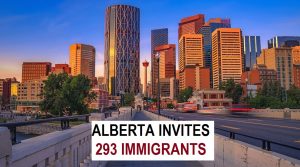IRCC is switching to the NOC 2021 system today. Here’s what you need to know before that change takes effect.
Immigration, Refugees and Citizenship Canada (IRCC) will be transitioning to the 2021 version of the National Occupation Classification (NOC) system today, a change that has been in the works since the announcement on July 27.
This move will cause shifts in eligibility for some of Canada’s 100+ immigration programs, including Express Entry.
For instance, while the current NOC system (NOC 2016) requires that an Express Entry candidate has work experience classified under NOC skill types 0, A or B, IRCC’s shift to NOC 2021 will bring with it a shift to the Training, Education, Experience and Responsibilities (TEER) system.
This is how the skill type categories of the current NOC system match up with the TEER categories of the 2021 NOC system.
| NOC 2016 | NOC 2021 |
|---|---|
| Skill Type 0 | TEER 0 |
| Skill Level A | TEER 1 |
| Skill Level B | TEER 2 |
| Skill Level B | TEER 3 |
| Skill Level C | TEER 4 |
| Skill Level D | TEER 5 |
Updated NOC 2021 eligibility criteria for Express Entry
| Eligibility criteria | Canadian Experience Class | Federal Skilled Worker Program | Federal Skilled Trades Program |
|---|---|---|---|
| English or French skills | CLB 7 for TEER 0 or TEER 1 occupations; CLB 5 for TEER 2 or TEER 3 occupations | CLB 7 | CLB 5 for speaking and listening; CLB 4 for reading and writing |
| Type/Level of work experience | Canadian work experience in an occupation listed in one or more of these NOC TEER Categories: TEER 0, TEER 1, TEER 2, or TEER 3. | Work experience in an occupation listed in one of these NOC TEER Categories: TEER 0, TEER 1, TEER 2, or TEER 3. | Work experience in a skilled trade under key groups of TEER 2 or TEER 3.* |
| Amount of work experience | One year in Canada in the last three years (either combination of full-time or part-time work). | One year continuous within the last 10 years (combination of part-time, full-time or more than one job in your primary occupation). | Two years within last five years (either combination of full-time or part-time work) |
| Job offer | Not required. | Not required but you can get selection criteria (FSW) points for having a valid job offer. | A valid job offer of full-time employment for a total period of at least one year or a certificate of qualification in that skilled trade issued by a Canadian provincial, territorial or federal authority. |
| Education | Not required. | Secondary education required. You can get more selection criteria (FSW) points for your post-secondary education. | Not required. |
* Key groups of TEER 2 and 3 that are eligible for the FSTP include: Major Group 72, technical trades and transportation officers and controllers, excluding Sub-Major Group 726, transportation officers and controllers; Major Group 73, general trades; Major Group 82, supervisors in natural resources, agriculture and related production; Major Group 83, occupations in natural resources and related production; Major Group 92, processing, manufacturing and utilities supervisors, and utilities operators and controllers; Major Group 93, central control and process operators and aircraft assembly assemblers and inspectors, excluding Sub-Major Group 932, aircraft assemblers and aircraft assembly inspectors; Minor Group 6320, cooks, butchers and bakers, and; Unit Group 62200, chefs.
Note: CLB refers to Canadian Language Benchmark
Key note about selection factor points for the FSWP
The points given for selection factors as part of the Federal Skilled Workers Program (FSWP) will now follow the updated Skill Type/Level chart introduced with the NOC 2021 system.
Example: If a candidate would have received 10 points for arranged employment in Skill Type/Level 0, A or B, they will still get those points for arranged employment in TEER 0, 1, 2 or 3
Occupational eligibility changes coming for Express Entry with move to NOC 2021
With the transition to NOC 2021, 16 occupations will become newly eligible for Express Entry, while three occupations become ineligible. The three newly ineligible occupations will remain eligible for programs with broader occupational eligibility criteria, such as some streams of the Provincial Nominee Program (PNP).
16 newly eligible occupations:
- Payroll administrators
- Dental assistants and dental laboratory assistants
- Nurse aides, orderlies, and patient service associates
- Pharmacy technical assistants and pharmacy assistants
- Elementary and secondary school teacher assistants
- Sheriffs and bailiffs
- Correctional service officers
- By-law enforcement and other regulatory officers
- Estheticians, electrologists and related occupations
- Residential and commercial installers and servicers
- Pest controllers and fumigators
- Other repairers and servicers
- Transport truck drivers
- Bus drivers, subway operators and other transit operators
- Heavy equipment operators
- Aircraft assemblers and aircraft assembly inspectors
Three newly ineligible occupations:
- Other performers
- Program leaders and instructors in recreation, sport, and fitness
- Tailors, dressmakers, furriers, and milliners
Transition to NOC 2021 will have implications on the CRS
Like the changes described above with the FSWP, the Comprehensive Ranking System (CRS) points given for arranged employment will now follow the updated Skill Type/Level chart introduced with the NOC 2021 system.
Example: if a candidate would have received 50 points for arranged employment in Skill Type/Level 0, A or B, they will still get those points if their NOC is in TEER 0, 1, 2 or 3
Next steps based on your personal situation
Depending on where an individual candidate is in their Express Entry journey, IRCC requires different actions in accordance with the switch to NOC 2021.
Firstly, those who have not yet submitted an Express Entry profile but plan to do so on or after today’s switch will be required to find and submit their occupation’s code in line with the NOC 2021 when filling out the profile.
Meanwhile, candidates who have submitted a profile but have not received an Invitation to Apply (ITA) have different instructions from IRCC. In this case, candidates will need to update their submitted Express Entry profile any time after the changes are implemented tomorrow. This will require the individual to search the NOC 2021 list on the Employment and Social Development Canada (ESDC) website and update their profile with their TEER category and five-digit occupation code.
Finally, anyone who got their ITA prior to November 16 must submit their Express Entry application using NOC 2016 (using the NOC code provided at the time of receipt).




